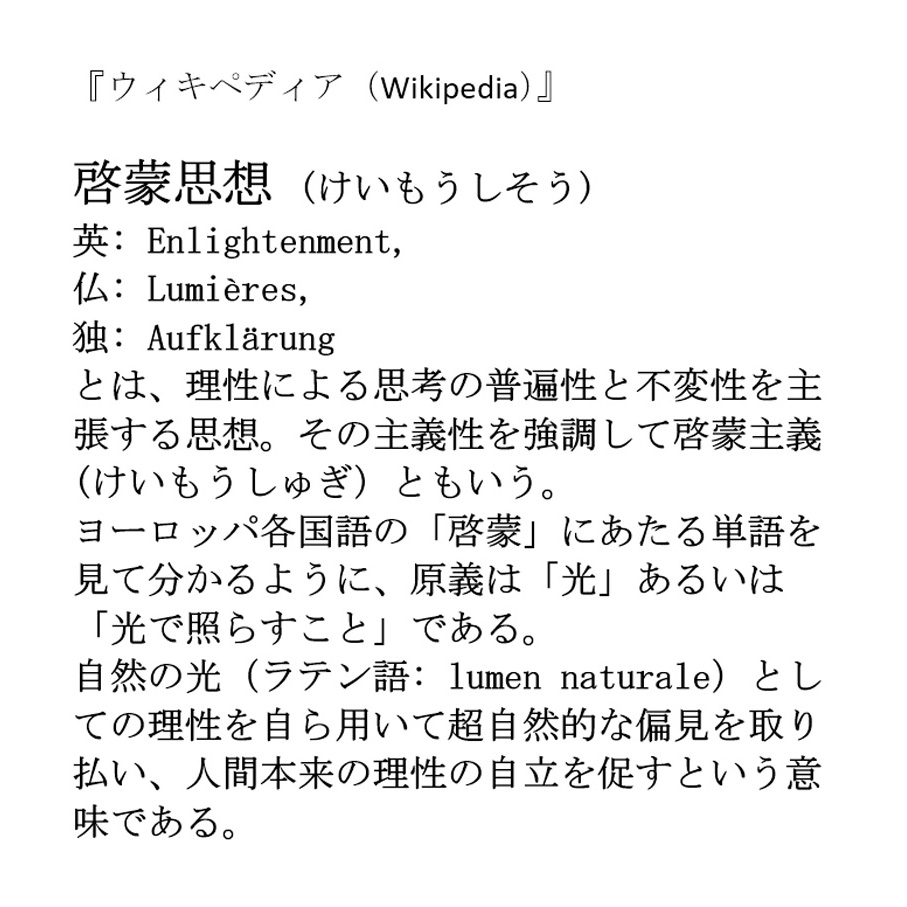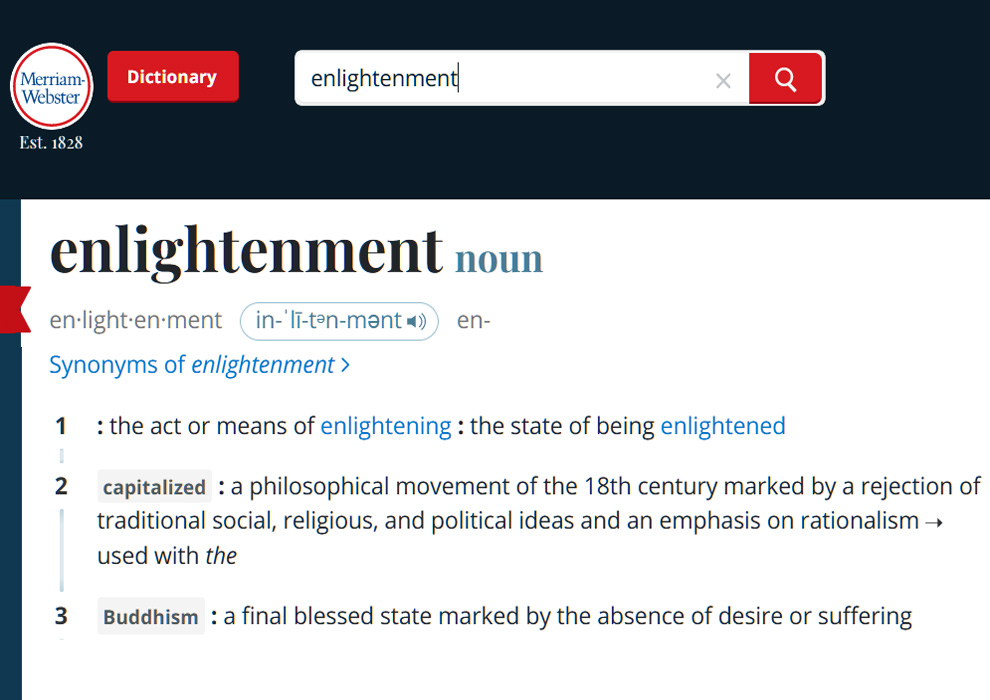Enlightenment
Yoshigasaki Sensei published the following text in his “Lectures from Doshu” on April 26, 2020. It can also be found in "Aikido in real life" on page 200.
Satori is not "enlightenment"
The word "satori" has been used by Zen people for many years in Japan and most probably someone in Europe or United States translated it as "enlightenment". The real meaning of "enlightenment" is intellectual and philosophical movement in Europe. See Wikipedia if you are interested. So "enlightenment" has nothing to do with "satori". Satori is based on physical experience. Enlightenment is intellectual and philosophical. I suppose some Indian guru mixed them in order to get many students in Europe and US. It happens very often that people twist the meaning of words for commercial reason. It is happening all the time in our society and we all have to careful not to be brain-washed by them.
This text sounds a bit surprising, but in the English Wikipedia you can find under "Enlightenment" what in French is "Lumières", in German is "Aufklärung" and in Italian "Illuminismo". The corresponding term in the Japanese Wikipedia is KEIMŌSHISŌ. Most translations of Yoshisaki Sensei's essay are therefore wrong.


